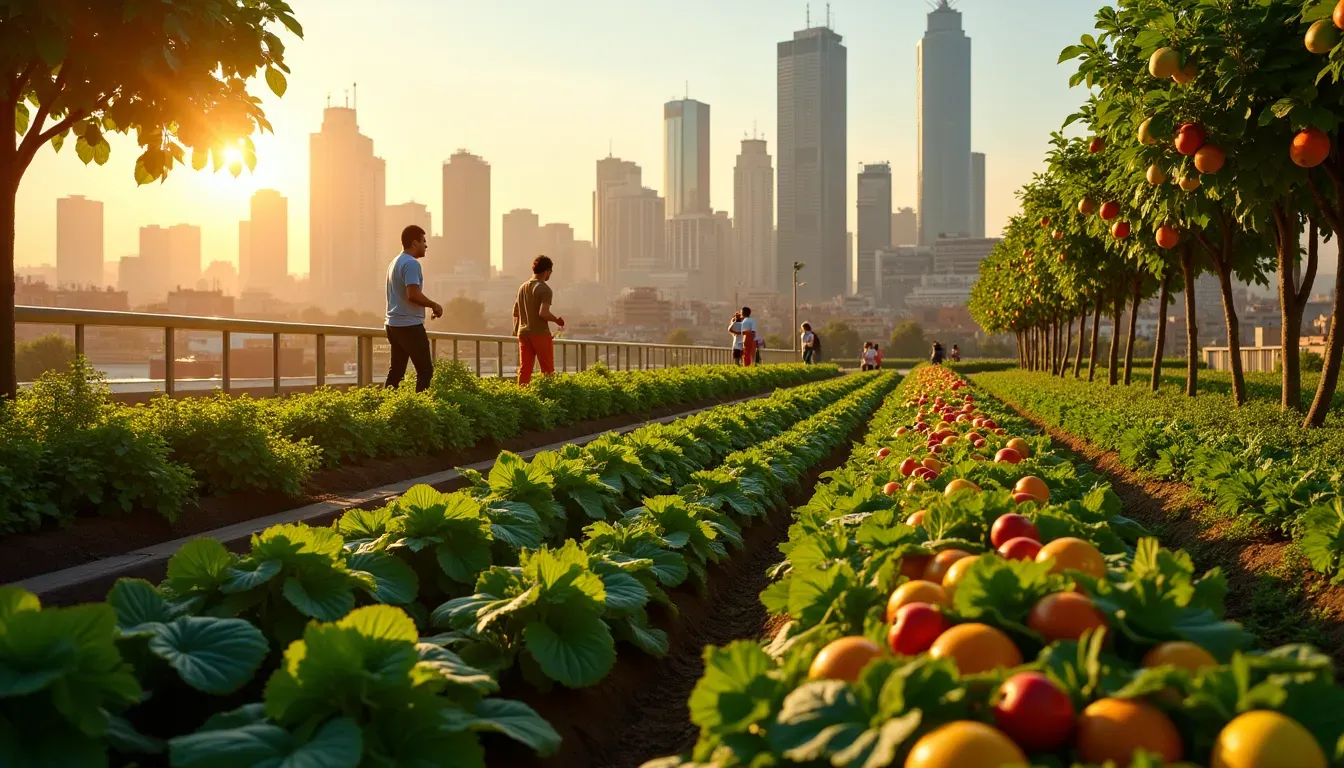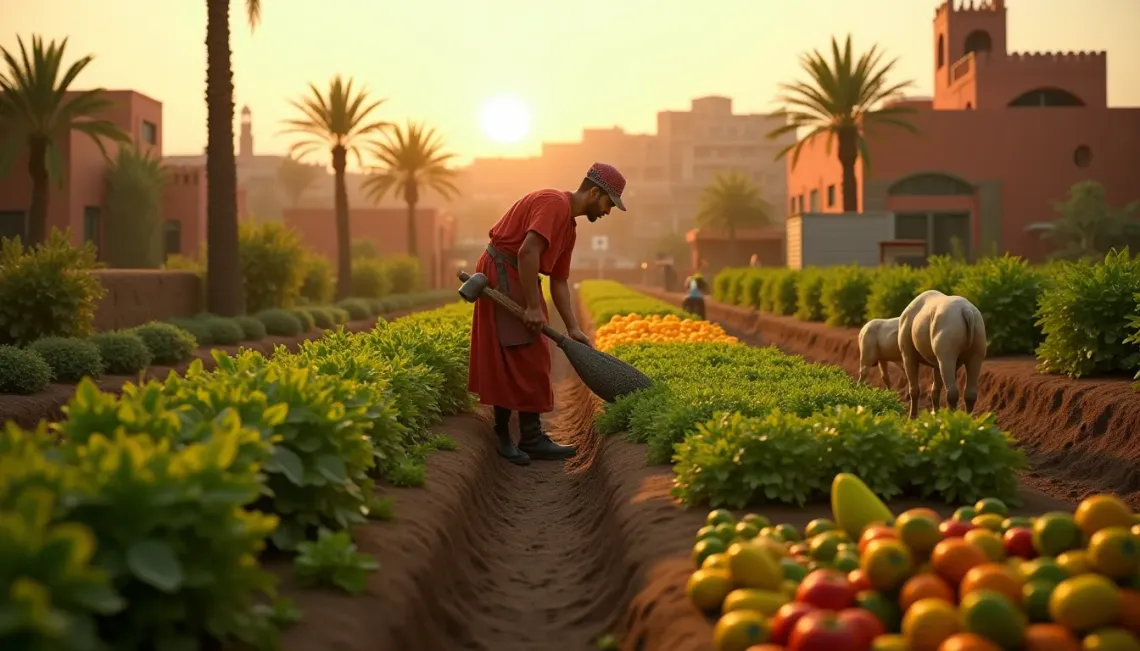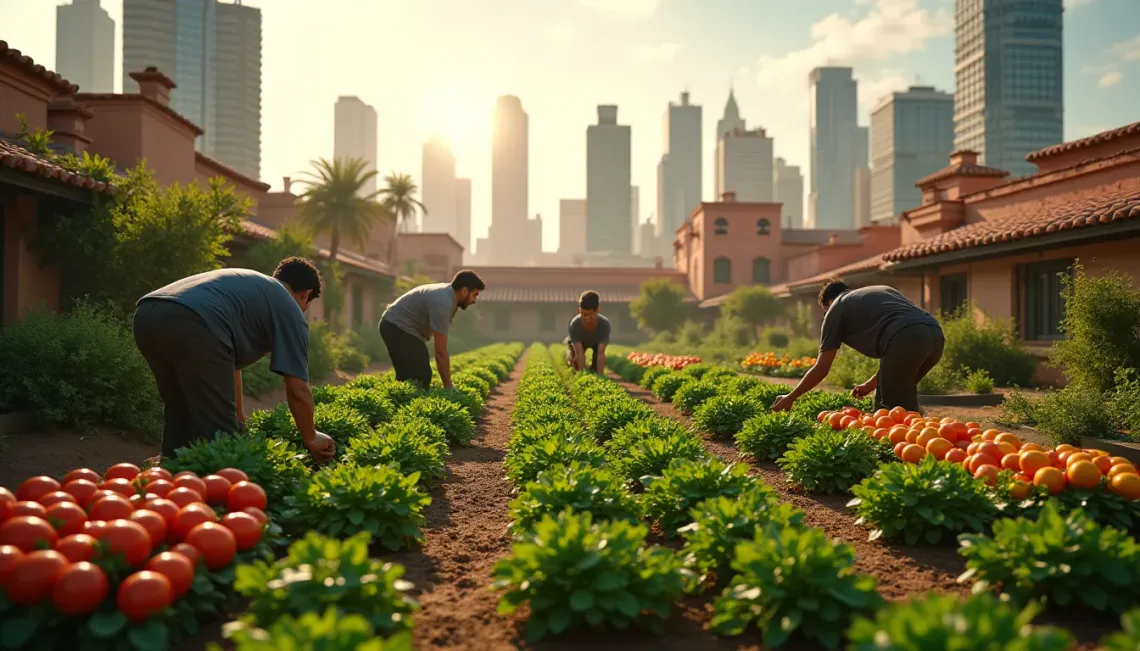In recent years, urban farming has emerged as a compelling solution for tackling the challenges of sustainable agriculture and food security in Moroccan cities. As urban populations surge, the demand for innovative farming techniques that can feed these growing communities while preserving resources becomes critical. Moroccan cities are embracing these innovations, transforming urban landscapes into thriving sources of fresh produce.
Why Urban Farming Matters in Moroccan Cities
The integration of urban farming into Moroccan cities is essential not only for achieving sustainable agriculture but also for enhancing food security. As these cities expand, the ability to produce food locally reduces the dependency on long food supply chains and mitigates the effects of global food market fluctuations. Furthermore, urban farming contributes to the economy by creating jobs and fostering entrepreneurship in agriculture.
Innovative Farming Techniques Reshaping Urban Landscapes
Morocco's adoption of innovative farming techniques within urban environments has been revolutionary. These methods are designed to maximize agricultural output while making efficient use of urban spaces:
- Vertical Farming: This technique uses vertical layers to grow food in different climate-controlled conditions, allowing for year-round production.
- Hydroponics and Aquaponics: By cultivating plants in nutrient-rich water, these systems save space and water, making them ideal for urban settings.
- Rooftop Gardens: Utilizing unused rooftop spaces in Moroccan cities not only provides fresh produce but also helps to reduce urban heat and improve air quality.
Enhancing Food Security Through Urban Farming
The resilience of Moroccan cities against food insecurity threats can be significantly bolstered through effective urban farming practices. These practices provide local populations with consistent access to nutritious food, decreasing their vulnerability to economic disruptions. Moreover, increasing urban farm output aligns with Morocco's broader sustainability goals, promoting self-sufficiency at a municipal level.
Challenges and Opportunities in Urban Farming
While urban farming presents numerous benefits, challenges such as limited space, regulatory hurdles, and initial setup costs can impede progress. However, Moroccan cities can overcome these barriers by fostering public-private partnerships and investing in research and development. By prioritizing these areas, cities can enhance their capacity for local food production and ensure sustained growth in urban farming.
In conclusion, urban farming offers Moroccan cities a sustainable agriculture model that effectively addresses food security. By embracing innovative farming techniques, these urban areas not only improve their self-sufficiency but also create vibrant, green spaces that benefit both the environment and community health. As Morocco continues to explore related topics like sustainable transport and waste management, the potential for further integration of urban farming innovations remains vast. These strides in urban agriculture symbolize a critical shift towards a more sustainable and food-secure future.




